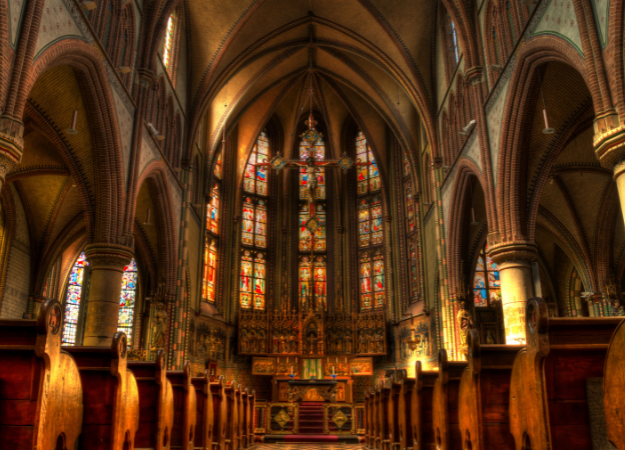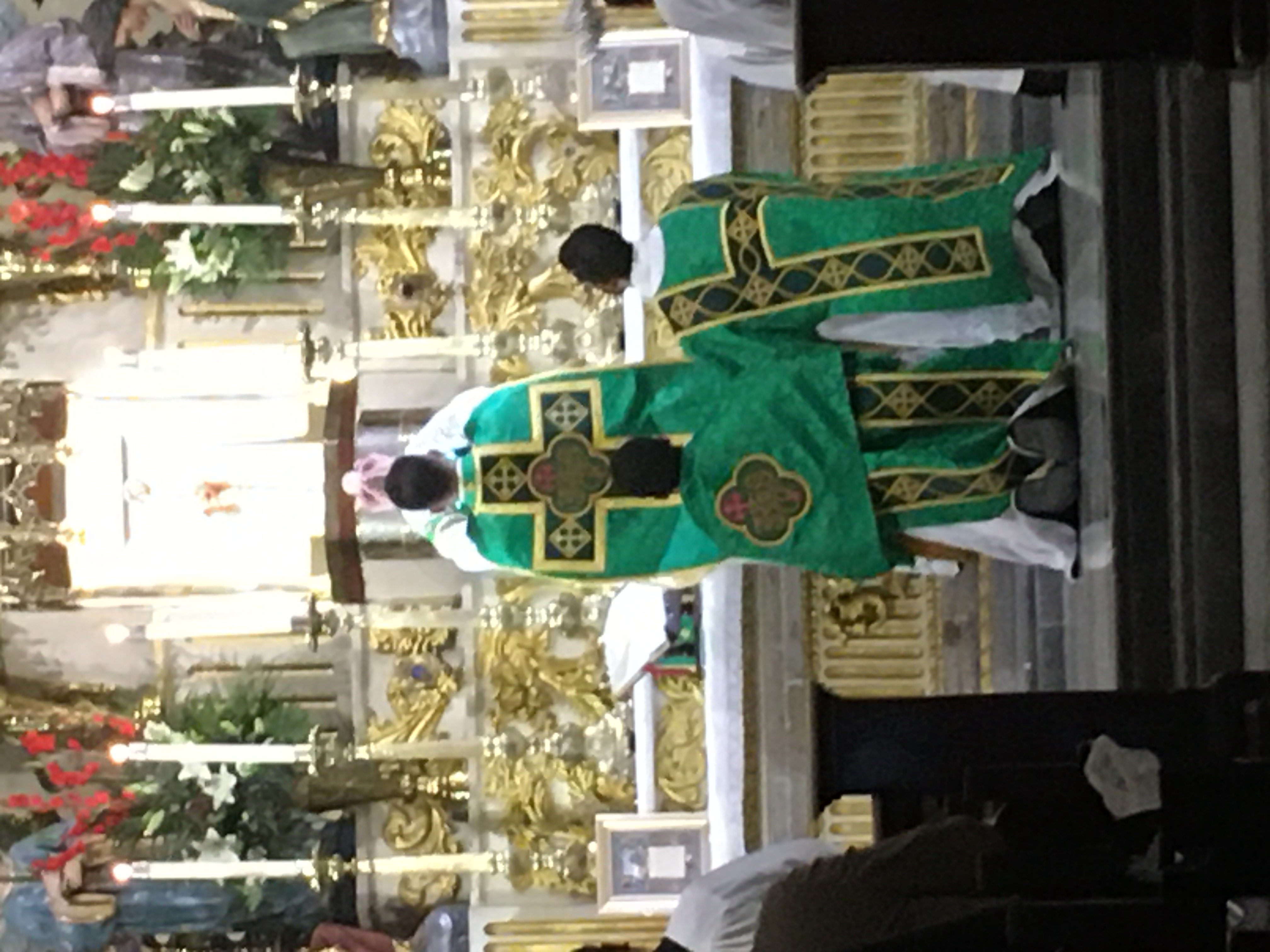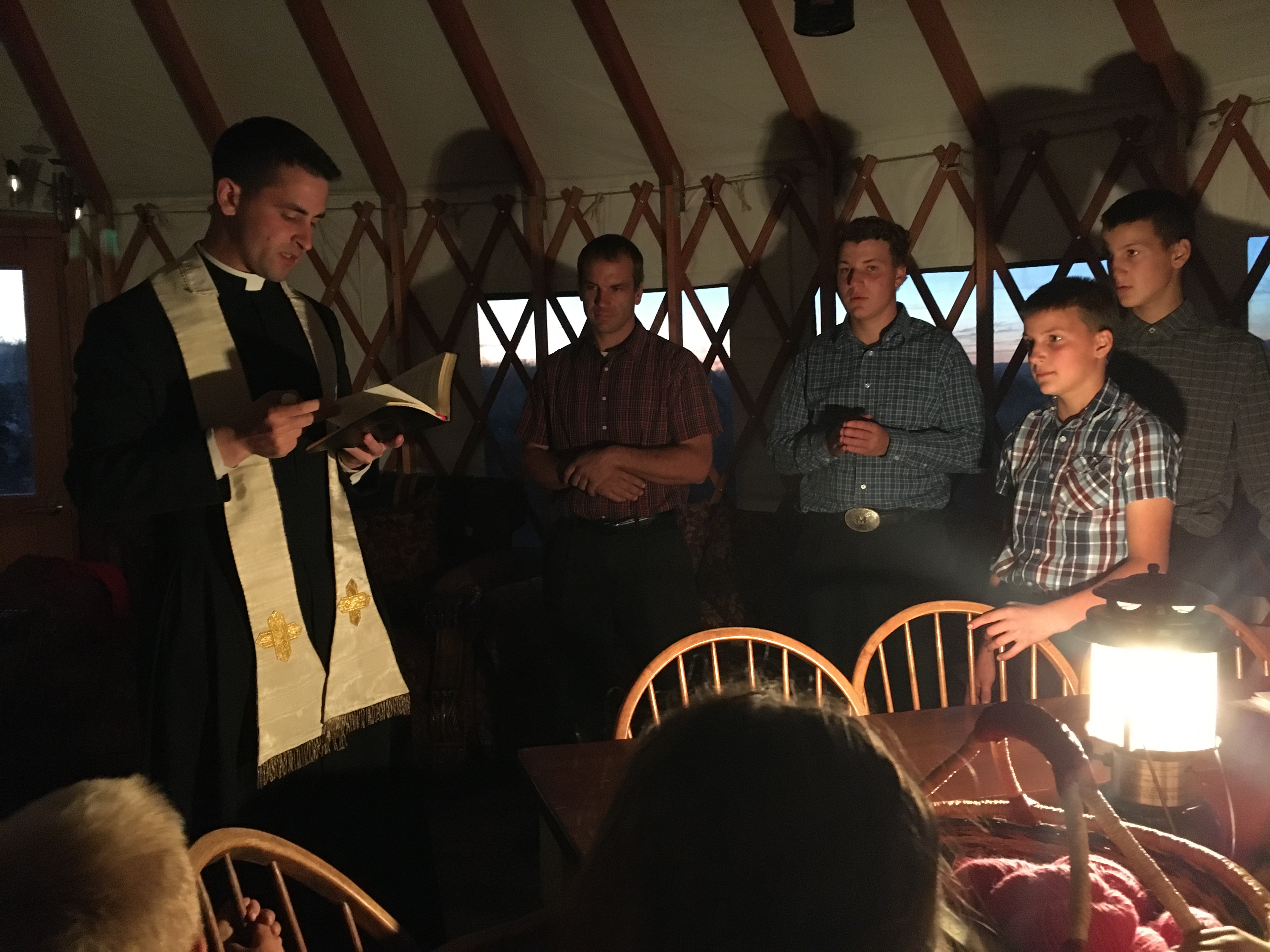- Home
- Faustina Bowen
- Summorum Pontificum
Did Summorum Pontificum Pave The Way For Traditionis Custodes?: A Traditionalist View On Both Moto Proprios
Could Summorum Pontificum have been a set up for instating the “Ordinary Form” without a fuss? The Tridentine Mass is not just the Mass in Latin or an “elitist” Mass. It is something that has been handed down to us from the Apostles.
July 12, 2024

Although I must say that allowing easier access to the Tridentine Mass was a good that came out of Pope Benedict XVI’s Moto Proprio Summorum Pontificum, I do still wonder if the manner in which is was promulgated introduced a certain amount of relativism regarding the matter that did not previously exist in relation to the Mass prayed in its Traditional form.
The Trouble With Relativism And Why This Ideology Has No Place When Preaching Truth
Before I go into what I mean by this, allow me to give a short description of what relativism is. Fr. Baker describes it as a “Philosophy holds that there is no such thing as objective truth that transcends time and is permanent. It holds that what is true today can be false tomorrow; it holds that contradictory opinions…can both be true.”
I like to describe relativism as an attitude of “your truth may be different from my truth, but they are both true.” Of course any man who takes himself seriously and is not pushing an agenda will never be able to adhere to such a ridiculous concept.
This “truth is bendable” has been applied to many aspects including politics, principles, religion and even now down to the Mass. I have met several people who usually attend the Norvus Ordo who stumbled in on a Tridentine Mass and say, “Both forms are beautiful, and I just want to learn more about both.” I can’t help but feel that learning more will surely only convince them that one is beautiful and the other is far from it.
In Summorum Pontificum, Pope Benedict XVI writes, “The Roman Missal promulgated by Saint Pius V and revised by Blessed John XXIII is nonetheless to be considered an extraordinary expression of…the Church and duly honored for its venerable and ancient usage. These two expressions of the Church’s lex orandi will in no way lead to a division in the Church’s lex credendi (rule of faith); for they are two usages of the one Roman rite.”
True, this is considered two “usages” of the one Roman Rite, but one is a preservation of this Rite as has always been used while the other is a scrapping of the ancient liturgy to use something new entirely.
How does this play into my assumption that perhaps this Moto Proprio introduced relativism where the liturgy is concerned?
Whereas before the Church was divided into two camps each claiming that the other was decidedly wrong and there is only one form of the Roman Rite, now the Church was pretending that both were good and wholesome.
Before one camp was saying that the Tridentine Mass was irrelevant and that a new liturgy was needed to connect to modern man.
The other camp claimed that they adhered to what the Church has always taught and was using the liturgy that formed the characters of every saint in the past—the Church is the same yesterday, today and always.

Placing the two forms side by side caused a new problem: Traditionalists were still claiming that there was a problem and a betrayal at the hands of those in authority in the Church while the rest of the world attempted to tell them that the problem was resolved. “You have your Mass, now be at peace and stop fighting.”
This feels like a tactic to lull any and all resistance to sleep.
READ: Living As Catholics In The World But Not Of It
How Gas Lighting Is Used To Silence Opposition And Marginalize Those Who Still Resist And Why This Relates To Summorum Pontificum
There is such a thing as gas-lighting. In one of the books written by Baroness Orczy, one of the characters is kidnapped. The villain travels through the village first to let the townsfolk know that he is caring for a poor deranged woman who may cause a stir, but not to worry, she is well taken care of and is just a little crazy.
When he brings his victim through the town, she attempts to immediately raise awareness about her situation and call for help. Everyone hears her but just look at her with pity and say, “Poor lady!”
Exasperated, the woman quiets down, knowing that she is beyond help. A similar situation was made by the placing of the Old Mass on the menu alongside the Norvus Ordo. Now anyone who cries out for help amidst the chaos that rends the Church is seen as a crazy person who does not yet have a good grip on the reality of the world today.
Or so it was until two years ago when we had a new Moto Proprio from Pope Francis, Traditionis Custodes. Summorum Pontificum seems to have almost paved the way for Traditionis Cusodes in the fact that a large amount of the people were provided the Mass of the Ages with an attitude of “that’s just what some people prefer”.
Once people had grown comfortable attending this Mass again and given a reasonable chance of finding one, it was again wrenched away from them, only now the battle-ready attitude has also been stripped away. The faithful who attend these Masses have been taught to behave as if it’s their preference just like deciding which fast food restaurant they want to go to.
READ: Fabiola : The Timely Tale Of The Catacombs
Once it is taken away, those who do not attend those Masses just feel like, “What’s the big deal? Get over it and go to the other Mass.”
How Preserving The Old Mass Is Vital To The Survival Of The Church

Here’s the big deal and why the Traditional Mass is favored by a large portion of the faithful.
The Tridentine Mass is not just the Mass in Latin or an “elitist” Mass. It is something that has been handed down to us from the Apostles.
Yes, it’s true that they didn’t have Gregorian chant per se since this wasn’t introduced until the early Middle Ages, but the structure for the Mass was there.
Here’s another thing, the Norvus Ordo is not the same Mass just said in the common tongue. Most if not all of the prayers have been changed. This isn’t the same Mass in different languages, it is a “new order” all together.
And even secular people seem to have a sense to adhere to traditions just for survival. Where this is true in the worldly realm, it is also true in the liturgy. We must connect with the past if we dare look into the future.
The Traditional Mass places God in His true place before man. He isn’t someone who we are “best buds” with although He is here for us to turn to in order to attain salvation. Fear of the Lord is a gift of the Holy Ghost that we receive in Confirmation. When attending a Traditional Mass, the faithful’s eyes are turned toward the altar, where Christ Himself is sacrificed in an unbloody manner.
Surrounding the King of kings is gold and beautiful works of art. King, priest and sacrifice is exuding from every action at the altar where the priest only turns to the faithful to instruct during his sermon after kissing the altar.
Perhaps our current society’s distance from royalty has played a part in the disrespect we now see in many Catholics’ attitude toward the Blessed Sacrament. In Great Britain, it is a rule that you can never turn your back towards the Queen (or King now). The way that a priest must kiss the altar whenever he turns his back to it has always reminded me of this. It makes me feel as if the priests are loyal subjects of His Majesty and must ask permission before turning their backs.
This great and powerful God as opposed to a more “friend” God is very attractive to men particularly and when men take control of their families and raise them to love God, that is when our culture will really make a change for the better.
So why not make the Mass that attracts men and makes saints the “ordinary form”?
Faustina Bowen is passionate about storytelling and its power to preserve culture. Influenced by classic literature and history, she believes great stories connect us to each other and our past. As Production Director at Industrious Family Films, Faustina oversees most of the scripts and ensures projects stay on track. From drafting call sheets to managing communications, she is doing her part to bring Catholic, virtue-filled films to life.
By becoming an Industrious Family Films Sponsor you directly support the movement which is rebuilding Christian art.
I'd like to advertise with Industrious Family.
Subscribe To Our FREE Email Newsletter:
What's New At The Studio
-
Celebrating Our Collaborators: Aaron Kessler
Apr 25, 25 03:00 PM
-
Coming Soon to Industrious Family Theater: The Beauty of Sacred Art
Apr 25, 25 09:00 AM
-
Get Exclusive Reviews of Angel Studios Films – Starting with The King of Kings
Apr 24, 25 03:00 PM














